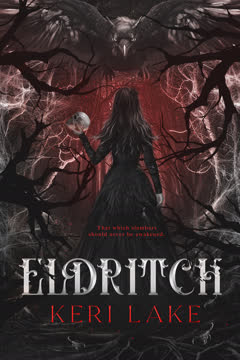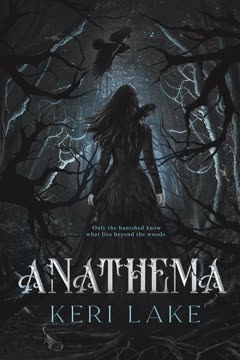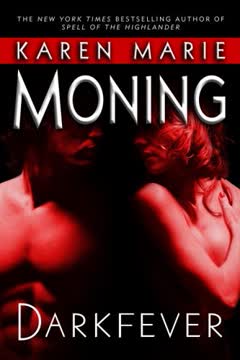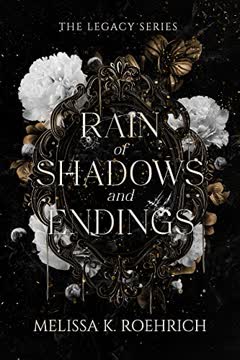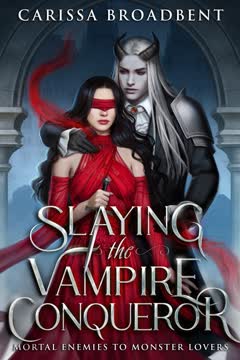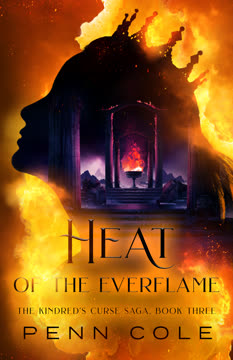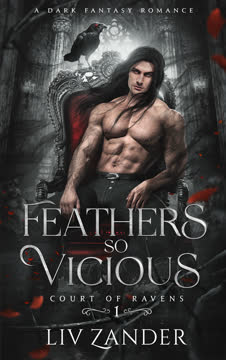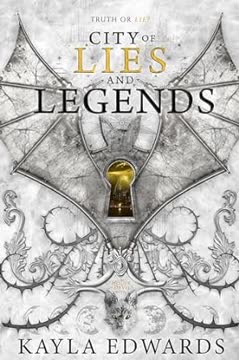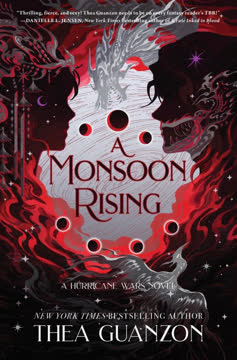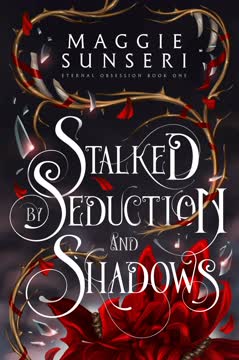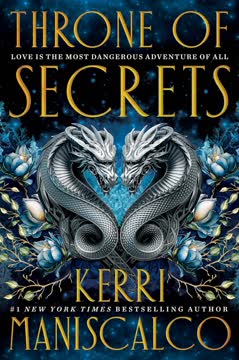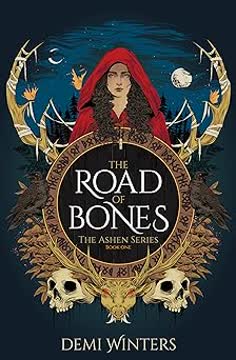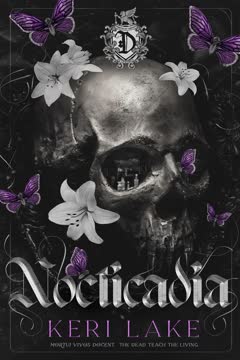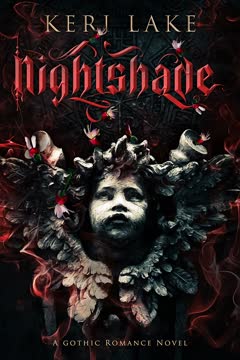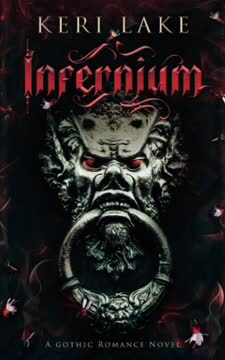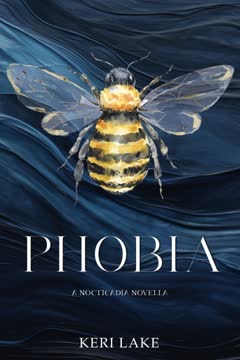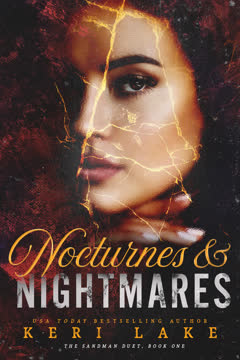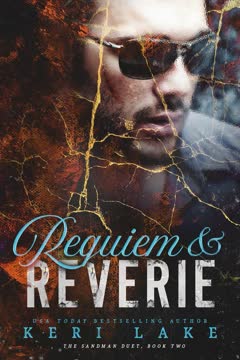Plot Summary
Blood and Prophecy
In the bowels of a corrupt temple, a Lyverian woman gives birth to a silver-eyed child, prophesied to bring ruin. The mother is murdered, the infant abandoned in the deadly Eating Woods as a sacrifice. A crone intervenes, hiding the child's true nature and delivering her to safety. The prophecy lingers: an ancient power will rise, two worlds will fall to pestilence, and the strong will kneel. This moment sets the stage for a story of blood, fate, and the struggle between gods and mortals.
The Abandoned and the Chosen
Maevyth, the abandoned child, grows up an outcast, haunted by visions and the cruelty of her village. Her sister Aleysia is lost, and Maevyth's only hope is to find her. Zevander, a man scarred by a mysterious curse, is drawn to Maevyth by forces neither fully understands. Both are marked by ancient powers—Maevyth as a vessel of death, Zevander as the bearer of the black flame. Their destinies entwine as they seek answers, love, and survival in a world unraveling.
Chains, Scars, and Survival
Zevander's past is a tapestry of pain: imprisoned, tortured, and forced to fight for survival in the mines and the Gildona, a harem of slaves. Betrayed by those he trusted, he is shaped by violence and loss, his body and mind scarred. Maevyth, too, is shaped by suffering—her childhood marked by religious abuse and the constant threat of death. Both learn to wield their pain as power, but the cost is high: trust is rare, and love is a dangerous vulnerability.
The Witch's Daughters
Against all odds, Maevyth finds Aleysia, but her sister is changed—infected by a plague that warps body and mind. The sisters' bond is tested as Maevyth confronts the darkness within herself and the world. The crone's legacy, the truth of their bloodline, and the goddess Morsana's designs come to light. Maevyth is not merely a survivor; she is a chosen vessel, destined to shape the fate of mortals and gods alike.
Monsters in the Woods
The world outside is no safer than the world within. Villages fall to monstrous spider-like creatures, the infected become mindless predators, and the Eating Woods teem with ancient horrors. Zevander and Maevyth must fight not only for their lives but for their humanity, as the line between man and monster blurs. The black flame within Zevander is both weapon and curse, and Maevyth's powers grow with every death she touches.
The Gildona's Torment
Zevander's years in the Gildona are a crucible of pain and humiliation. Forced to serve General Loyce, he is broken and remade, his only solace the fleeting moments of escape into Caligorya, a dream realm where he glimpses Maevyth's suffering. Loyce's obsession with Zevander is both sexual and strategic—she seeks to bind him, to control the power of the black flame. Zevander's resistance is both his strength and his torment.
The Black Flame's Curse
The black flame is more than a weapon—it is a living curse, a fragment of the god Deimos, capable of destroying worlds. Zevander's bond with Maevyth is both salvation and doom, for their love is the key to awakening powers that could shatter the Umbravale, the barrier between worlds. Cadavros, a spindling-turned-mage, manipulates events from the shadows, seeking to unleash Pestilios, the god of plague, and bring about the prophecy's end.
Reunion and Ruin
Maevyth and Zevander's reunion is fraught with danger and longing. Their love is tested by trauma, guilt, and the ever-present threat of loss. As they journey together—training, fighting, and seeking the means to save Aleysia—they are forced to confront the darkness within themselves and each other. The world around them crumbles, and every victory is paid for in blood.
The Church of Suffering
The survivors seek refuge in the temple, only to face the same cruelty that has always haunted them. Sacton Crain, the architect of Maevyth's suffering, is confronted and destroyed. The villagers, driven by fear and zealotry, turn on the sisters, but Maevyth's power—her whip of bone, her touch of death—shatters their illusions. The old order falls, but the cost is innocence lost and the burden of power.
The Vein and the Vessel
In the Lyverian mountains, Maevyth learns the truth of her heritage: she is Vasmora, the vessel of death, fated to restore or destroy the bloodline. The priestess demands proof—Maevyth must survive the dead vein, the source of vivicantem, or be consumed by it. Zevander's presence, his black flame, is both a blessing and a threat. The gods watch, and the fate of two worlds hangs in the balance.
The Rotting Tree's Secret
The Rotting Tree is the heart of Pestilios's power, a place where the boundaries between life and death, mortal and god, are thin. Maevyth and Zevander are drawn into its depths, facing monstrous spiders, wraiths, and the wrath of Cadavros. Zevander's infection threatens to consume him, and Maevyth must make an impossible choice: to save him, she must risk everything, even her own soul.
The Fall and the Chasm
In a desperate battle at the Umbravale, Zevander faces Cadavros and the unleashed plague. The barrier between worlds is threatened, and Zevander, mortally wounded, falls into the chasm—Nethyria, the realm of death. Maevyth, left behind, is shattered by grief but refuses to surrender hope. The prophecy nears fulfillment, and the world teeters on the edge of ruin.
Death's Bargain
Zevander awakens in a field of black roses, greeted by Morsana, the goddess of death. She offers him a bargain: return to Maevyth, but only until her own death and transcendence. Zevander's love is tested against the will of the gods, and the cost of defying fate becomes clear. Meanwhile, Maevyth bargains with death herself, refusing to let Zevander go.
The Price of Freedom
The past returns to haunt Zevander: the betrayal of Theron, the suffering of friends, the cost of every choice. Loyce's cruelty, Cadavros's manipulations, and the deaths of allies weigh heavily. The survivors are marked by loss, and the world is forever changed. Freedom is won, but at a price that may be too high to bear.
The Goddess and the Assassin
Maevyth and Zevander's love endures even as the gods conspire to separate them. Their bond is both weapon and shield, a force that can reshape destiny. Together, they face the final trials—betrayal, sacrifice, and the threat of annihilation. The world's fate rests on their willingness to defy the gods and embrace the darkness within and between them.
The Plague Unleashed
Pestilios's power is unleashed, the Umbravale is threatened, and the plague spreads. The survivors fight for every breath, every moment of hope. The gods' games reach their climax, and the cost of love, power, and survival is revealed. The world is forever changed, and the story ends on the precipice of a new age—one shaped by blood, death, and the enduring power of love.
The End of Mercy
Zevander's fall into the chasm is not the end, but a beginning. Maevyth, shattered but unbroken, refuses to surrender to despair. The survivors are scattered, the world in ruins, but the promise of reunion lingers. The gods are not finished, and the story is not yet done. The next chapter awaits, in darkness and in hope.
Characters
Maevyth
Maevyth is the abandoned child of prophecy, marked by silver eyes and a bloodline that ties her to the goddess of death, Morsana. Raised in cruelty and isolation, she is both vulnerable and fiercely resilient. Her journey is one of self-discovery, as she learns to wield her deadly powers and accept her role as Vasmora, the vessel of death. Her love for her sister Aleysia and for Zevander is her anchor, but also her greatest weakness. Maevyth's arc is defined by the struggle to reconcile mercy with necessity, to find hope in a world that has only ever shown her pain, and to defy the fate written for her by gods and mortals alike.
Zevander
Zevander is a man forged in suffering: a childhood marked by betrayal, years of torture and humiliation in the mines and the Gildona, and a curse that ties him to the ancient god Deimos. His body is a map of scars, each one a testament to pain endured and survived. Zevander's love for Maevyth is both his salvation and his undoing, awakening powers that could destroy worlds. He is haunted by guilt, loss, and the fear of becoming a monster, but his will to protect those he loves is unbreakable. His journey is one of redemption, as he learns to wield his power not as a weapon of destruction, but as a force for hope.
Aleysia
Aleysia is Maevyth's younger sister, lost and found, infected and cured. Her journey is one of transformation—physically, emotionally, and spiritually. She is both a victim of the world's cruelty and a survivor who finds her own strength. Her relationship with Maevyth is complex: love, resentment, dependence, and ultimately, acceptance. Aleysia's arc is a reflection of the story's central themes: the cost of survival, the power of love, and the possibility of redemption.
Cadavros / Alastor
Cadavros is a figure of tragedy and ambition: born powerless, he becomes the most dangerous mage in the world, driven by a desire to overturn the order that oppressed him. His bond with his sister Melisara, his manipulation of Zevander, and his quest to unleash Pestilios make him both villain and victim. Cadavros's arc is a meditation on the corrupting power of pain, the hunger for vengeance, and the thin line between savior and destroyer.
General Loyce
Loyce is Zevander's tormentor, obsessed with breaking and possessing him. Her cruelty is both personal and systemic—a reflection of the world's violence, especially toward the vulnerable. Loyce's relationship with Zevander is a twisted mirror of love and domination, desire and destruction. She is both a product and an architect of the world's suffering, and her downfall is a testament to the story's central message: that power without mercy is its own undoing.
Kazhimyr
Kazhimyr is Zevander's oldest friend, a fellow survivor of the mines and the world's cruelty. His loyalty is unwavering, his humor a shield against despair. Kazhimyr's journey is one of endurance—he is the anchor that keeps others grounded, the reminder that hope is possible even in the darkest times. His losses are many, but his will to fight for those he loves never falters.
Ravezio
Ravezio is a fellow Letalisz, marked by his own suffering and resilience. His fate—tortured and killed by Cadavros—serves as a reminder of the story's stakes: that survival is never guaranteed, and that every victory is paid for in blood. Ravezio's friendship with Zevander and Kazhimyr is a source of strength, and his death is a wound that never fully heals.
Erithanya (The Priestess)
Erithanya is the Lyverian priestess, a figure of authority and wisdom. She is both ally and obstacle, demanding proof of Maevyth's destiny and enforcing the old ways. Her arc is one of adaptation—learning to accept change, to trust in new blood, and to let go of the past. She is a symbol of the world's potential for both cruelty and mercy.
Dravien
Dravien is a figure of ambiguity: sometimes friend, sometimes foe, always self-interested. His skills and knowledge are invaluable, but his loyalties are uncertain. Dravien's arc is a meditation on the cost of survival, the price of freedom, and the possibility of redemption.
Sacton Crain
Sacton Crain is the embodiment of the world's cruelty: a man who wields faith as a weapon, who sacrifices the innocent in the name of a false god. His destruction at Maevyth's hands is both justice and tragedy—a necessary end to an era of suffering, but a reminder that the wounds he inflicted will never fully heal.
Plot Devices
Prophecy and Fate
The story is driven by a prophecy spoken at birth: an ancient power will rise, two worlds will fall, and the strong will kneel. This prophecy shapes every character's choices, creating a sense of inevitability and doom. Yet the story also interrogates the nature of fate—can it be changed, or only fulfilled? Maevyth and Zevander's struggle is not only against external enemies, but against the roles written for them by gods and mortals alike.
Dual Worlds and the Umbravale
The Umbravale is both literal and symbolic: a shimmering wall that separates Aethyria from Mortasia, the living from the dead, hope from despair. Its destruction is the story's central threat, and its preservation the goal of every hero. The duality of the worlds reflects the duality within the characters: light and dark, love and hate, mercy and violence.
Infection and Transformation
The plague that transforms mortals into monsters is both a physical threat and a symbol of the world's corruption. Infection is not only a matter of blood, but of soul—every character is marked by trauma, every victory is tainted by loss. The story's central question is not whether the world can be saved, but whether it deserves to be.
Blood Magic and Eldritch Power
Blood magic is the source of power, but also of suffering. The black flame, the bone whip, the touch of death—each is a weapon, but also a burden. The story explores the cost of power: what must be sacrificed, who must be hurt, and whether mercy is possible in a world built on violence.
Love as Defiance
The love between Maevyth and Zevander is both a source of strength and a threat to the world. Their bond is the key to awakening ancient powers, but also the only hope for redemption. Love is not a simple escape, but a choice to fight for something better, even when the world insists it is impossible.
Trauma, Memory, and Identity
The story is structured around flashbacks, dreams, and visions—memories that haunt and shape the present. Characters are defined by what they have survived, by the scars they carry, and by the secrets they keep. The struggle to remember, to forgive, and to move forward is as central as any battle.
Sacrifice and the Cost of Survival
The story is unflinching in its depiction of loss: friends die, families are destroyed, innocence is lost. Survival is never free, and every choice has consequences. The story's emotional power comes from its willingness to confront the cost of hope, and to insist that even in the darkest times, mercy is possible.
Analysis
Eldritch is a dark, emotionally charged epic that interrogates the nature of fate, power, and love in a world on the brink of annihilation. At its core, the novel is about the struggle to find hope and meaning in the face of overwhelming suffering. The prophecy that drives the plot is both a curse and a challenge: it insists that destruction is inevitable, but also invites the characters—and the reader—to ask whether destiny can be defied. Through the intertwined journeys of Maevyth and Zevander, the story explores the cost of survival, the burden of trauma, and the redemptive power of love. The world is brutal, its gods indifferent or cruel, and every victory is paid for in blood. Yet the novel insists that mercy, forgiveness, and connection are possible, even in the darkest times. The lessons are hard-won: that power without compassion is hollow, that love is both a weapon and a shield, and that the only way to break the cycle of suffering is to choose hope, again and again, even when the world insists it is futile. Eldritch is a testament to the resilience of the human spirit, and a reminder that even in a world built on pain, the possibility of redemption endures.
Last updated:
Review Summary
Eldritch is a highly anticipated gothic fantasy romance that has captivated readers. Many praise its dark atmosphere, complex characters, and intense plot twists. The book delves deeper into Zevander's tragic past and Maevyth's growing powers. While some found the pacing slow at times, most readers were enthralled by the emotional depth and world-building. The cliffhanger ending left fans eagerly awaiting the final installment. Despite a few critical reviews, the majority rate it 5 stars, calling it a masterpiece of dark fantasy romance.
The Eating Woods Series
Similar Books
Download PDF
Download EPUB
.epub digital book format is ideal for reading ebooks on phones, tablets, and e-readers.
